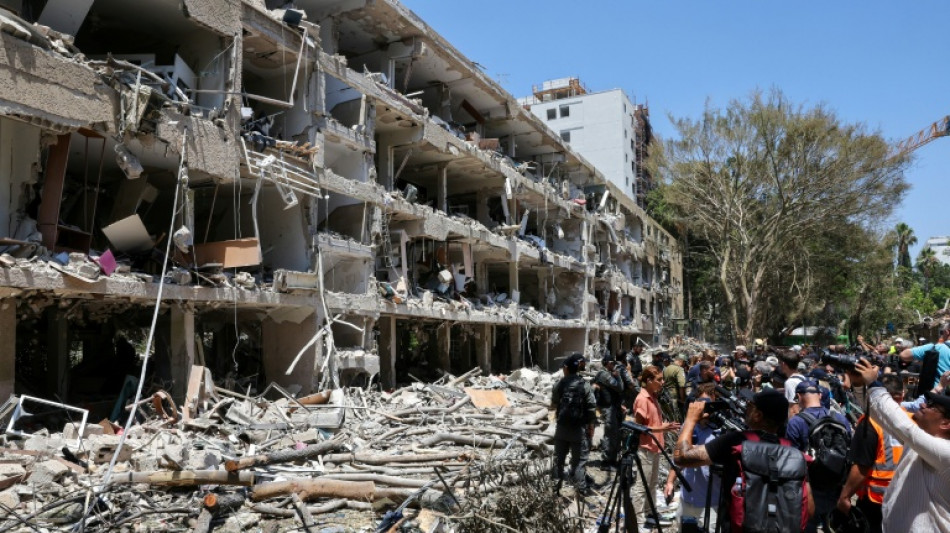
-
 UEFA to investigate alleged racist abuse of Vinicius
UEFA to investigate alleged racist abuse of Vinicius
-
'It's my story': US skater Liu looking to upset Sakamoto and Japanese

-
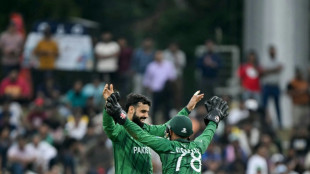 Cricket: T20 World Cup Super Eights explained
Cricket: T20 World Cup Super Eights explained
-
Rennes turn to Haise to replace Beye as coach

-
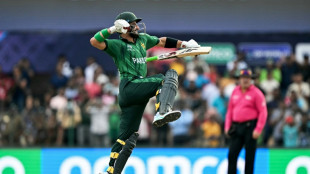 Ton-up Farhan helps Pakistan seal Super Eight spot with Namibia rout
Ton-up Farhan helps Pakistan seal Super Eight spot with Namibia rout
-
Norway's Klaebo extends all-time Winter Olympics golds record to 10

-
 Spanish police arrest hacker who booked luxury hotels for one cent
Spanish police arrest hacker who booked luxury hotels for one cent
-
Russia, Cuba slam US in Moscow show of solidarity
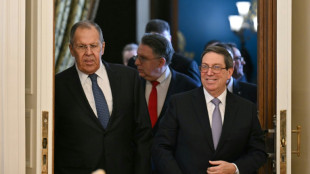
-
 Germany's Merz casts doubt on European fighter jet plan
Germany's Merz casts doubt on European fighter jet plan
-
Snowboarder Su Yiming wins China's first gold of Milan-Cortina Olympics

-
 How Real Madrid's Vinicius became repeated target of racist abuse
How Real Madrid's Vinicius became repeated target of racist abuse
-
Prince William opens up on mental health, understanding his 'emotions'

-
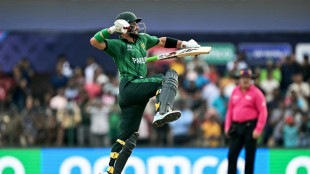 Farhan ton takes Pakistan to 199-3 in must-win T20 World Cup match
Farhan ton takes Pakistan to 199-3 in must-win T20 World Cup match
-
French hard left reports 'bomb threat' after far-right activist killing
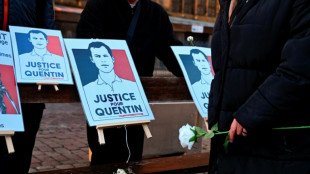
-
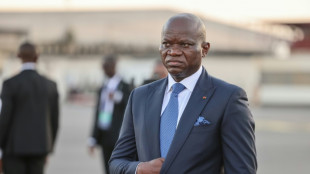 Gabon cuts off Facebook, TikTok after protests
Gabon cuts off Facebook, TikTok after protests
-
India celebrates birth of cheetah cubs to boost reintroduction bid

-
 Greek taxis kick off two-day strike against private operators
Greek taxis kick off two-day strike against private operators
-
Turkey MPs back moves to 'reintegrate' former PKK fighters
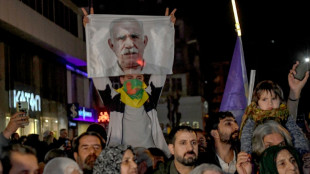
-
 Sri Lanka unfazed by England whitewash ahead of Super Eights clash
Sri Lanka unfazed by England whitewash ahead of Super Eights clash
-
Shiffrin primed for Olympic gold after rapid first slalom run

-
 Dog gives Olympics organisers paws for thought
Dog gives Olympics organisers paws for thought
-
South Africa fire Super Eights warning to India with UAE romp

-
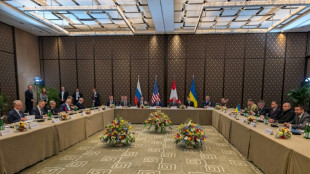 Ukraine war talks resume in Geneva after 'tense' first day
Ukraine war talks resume in Geneva after 'tense' first day
-
US tech giant Nvidia announces India deals at AI summit

-
 US comedian Colbert says broadcaster spiked Democrat interview over Trump fears
US comedian Colbert says broadcaster spiked Democrat interview over Trump fears
-
Kenyan activist fears for life after police bug phone

-
 Isabelle Huppert sinks teeth into Austrian vampire saga
Isabelle Huppert sinks teeth into Austrian vampire saga
-
Peru to elect interim leader after graft scandal ousts president
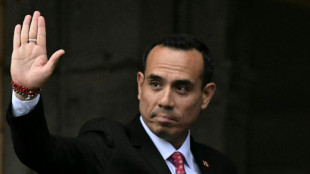
-
 French designer threads a path in London fashion week
French designer threads a path in London fashion week
-
Hungarian star composer Kurtag celebrates 100th birthday with new opera
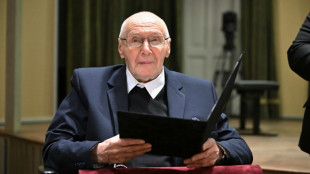
-
 Congolese rumba, music caught between neglect and nostalgia
Congolese rumba, music caught between neglect and nostalgia
-
'Close our eyes': To escape war, Muscovites flock to high culture

-
 Denmark king visits Greenland
Denmark king visits Greenland
-
Uncut gems: Indian startups embrace AI despite job fears

-
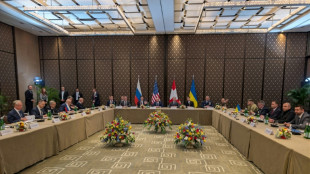 Ukraine war talks to resume in Geneva as US signals progress
Ukraine war talks to resume in Geneva as US signals progress
-
Harrop eyes 'Skimo' gold in sport's Olympic debut

-
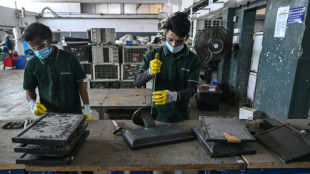 Junk to high-tech: India bets on e-waste for critical minerals
Junk to high-tech: India bets on e-waste for critical minerals
-
Struggling farmers find hope in India co-operative

-
 How Latin American countries are responding to Cuba's oil crisis
How Latin American countries are responding to Cuba's oil crisis
-
Philippines VP Sara Duterte announces 2028 presidential run

-
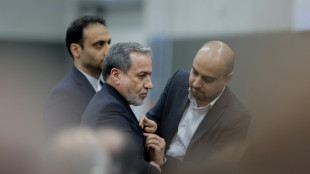 Asian stocks up, oil market cautious
Asian stocks up, oil market cautious
-
Peru Congress impeaches interim president after four months in office
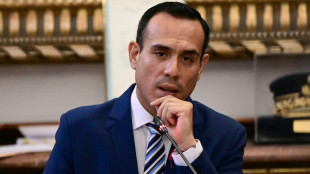
-
 Hungry, wounded, orphaned: South Sudan's children trapped in new conflict
Hungry, wounded, orphaned: South Sudan's children trapped in new conflict
-
UK manufacturers struggle under sky-high energy bills

-
 New tech and AI set to take athlete data business to next level
New tech and AI set to take athlete data business to next level
-
'Pay or he dies', families told as more Egyptians risk Mediterranean crossing
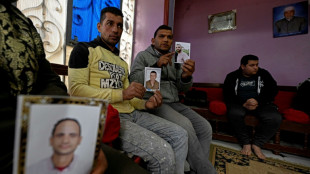
-
 Indonesia coal plant closure U-turn sows energy transition doubts
Indonesia coal plant closure U-turn sows energy transition doubts
-
Ukraine war talks to resume in Geneva with no sign of progress
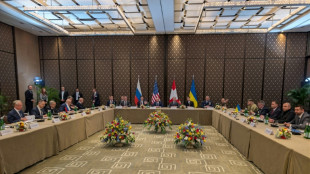
-
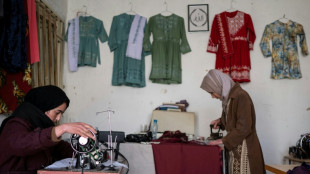 Afghan woman's boutique brightens Bamiyan
Afghan woman's boutique brightens Bamiyan
-
Zuckerberg to testify in landmark social media addiction trial


Iran strikes damage hard to assess under Israeli military censorship
Israel has acknowledged being hit by more than 50 missiles during the 12-day war with Iran, but the true extent of the damage may never be known due to stringent press restrictions.
Such regulations are nothing new in Israel, where any written or visual publication deemed potentially harmful to the loosely defined concept of "national security" can be banned by law.
Censorship predates the creation of Israel in 1948, when the territory was under a British mandate.
But with the recent missile barrages from Iran that managed to breach Israel's vaunted air defences and kill 28 people, the restrictions were further tightened.
Any broadcast from a "combat zone or missile impact site" requires written authorisation from the military censor, according to the Israeli Government Press Office, which is responsible for government communications and for accrediting journalists.
This requirement is particularly stringent when strikes land near military bases, oil refineries, or other facilities deemed strategic.
"There is, of course, a very real national security dimension. You don't want to tell the enemy exactly where its bombs landed, or help them improve targeting," said Jerome Bourdon, professor of media sociology at Tel Aviv University.
"But this also maintains uncertainty around the country's vulnerability to external threats. We probably will never know the full extent of the damage," he added.
– 'Reverse the narrative' –
Most of the government's communication during the war focused on its military successes, with Prime Minister Benjamin Netanyahu on Tuesday praising a "historic victory" over Iran.
For Bourdon, the tightening of media coverage also reflects "a very clear desire to reverse the narrative", at a time when Israel faces harsh international criticism over its war in Gaza, which has killed tens of thousands and triggered dire humanitarian conditions.
On June 19, Defence Minister Israel Katz accused Tehran of "deliberately targeting hospitals and residential buildings" after a hospital in the southern Israeli city of Beersheba was hit, injuring around 40 people.
Katz accused Iran of "the most serious war crimes", while Iran denied intentionally targeting the health centre.
Meanwhile, human rights defenders regularly condemn Israel's destruction of the healthcare system in Gaza and the targeting of hospitals under the claim that they are used by Palestinian militants.
During the war with Iran, media coverage near sites of missile strikes in Israel's civilian areas was occasionally hindered, as foreign reporters were prevented from filming wide shots or specifying the exact location of the impacts.
In the central Israeli city of Ramat Gan, police interrupted the live broadcast of two Western news agencies filming a gutted building, suspecting them of providing the footage to Qatari broadcaster Al Jazeera.
Israel banned the outlet in May 2024, alleging it has ties with Palestinian militant group Hamas, which Al Jazeera has denied.
– 'Illegal content' –
In a statement, police said they had acted to stop the broadcast of "illegal content" in accordance with the "policy" of National Security Minister Itamar Ben Gvir.
The far-right cabinet member, known for his incendiary rhetoric against critics, vowed on June 16 to take tough action against anyone who "undermines the security of the state".
"Zero tolerance for those who help the enemy," echoed Communications Minister Shlomo Karhi.
The two ministers "make claims that exceed the legal framework of their powers, and also are very, very extreme," said Tehilla Shwartz Altshuler, a researcher at the Israel Democracy Institute.
"Usually, they make a lot of noise" in order to "get political gain from this publicity," she told AFP.
Beyond political calculations, "these officials show a deep mistrust, a real hostility toward the liberal Israeli media, and especially toward the foreign media," said professor Bourdon.
The Government Press Office on Thursday reaffirmed its commitment to "freedom of the press... as a fundamental right" and insisted it makes "no distinction between Israeli and non-Israeli journalists".
A.Rodriguezv--AMWN

